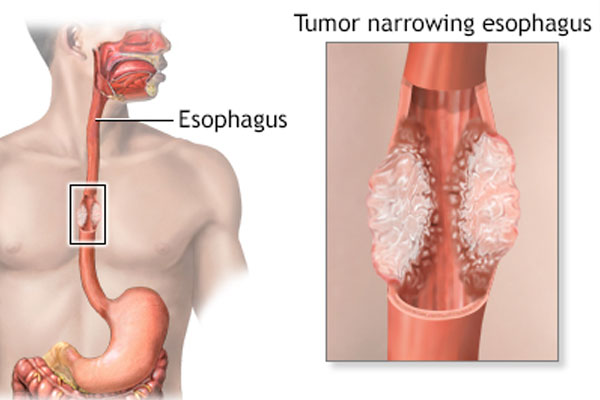
An esophagectomy is a surgical procedure in which part or all of the esophagus (the muscular tube that carries food and liquids from the mouth to the stomach) is removed. This procedure is typically performed to treat various medical conditions, most commonly esophageal cancer. There are several different types of esophagectomy, including:
Transhiatal Esophagectomy: In this approach, the surgeon removes a portion of the esophagus without making large incisions in the chest or abdomen. The procedure is less invasive but may not be suitable for all cases.
Ivor Lewis Esophagectomy: This procedure involves both abdominal and right-sided thoracic incisions. The upper part of the stomach is used to create a new esophagus and is pulled up into the chest to replace the removed portion.
Three-Field Esophagectomy: This is a more extensive surgery where incisions are made in the abdomen, right side of the chest, and left side of the neck. It is typically reserved for advanced or complex cases of esophageal cancer.
Minimally Invasive Esophagectomy (MIE): This is a laparoscopic or robot-assisted surgical approach that is less invasive than traditional open surgery. MIE is performed through small incisions, and it may result in shorter recovery times and less scarring.
The choice of which type of esophagectomy to perform depends on the specific diagnosis, the stage of the disease, the patient's overall health, and the surgeon's expertise.
After an esophagectomy, patients often need to make significant lifestyle changes, particularly related to their diet and eating habits, as the surgery alters the way food is transported from the mouth to the stomach. Complications and side effects can include difficulty swallowing (dysphagia), reflux, changes in bowel habits, and weight loss, among others. Patients may require nutritional support and counseling to help manage these issues.
Esophagectomy is a complex and major surgical procedure, and the decision to undergo this surgery is typically made in close consultation with a medical team of surgeons, oncologists, and other specialists. The specific details of the procedure and the recovery process can vary based on the individual patient's condition and the surgical approach chosen. It's essential for patients to have a comprehensive understanding of the procedure, its potential risks, and the post-operative care plan.
